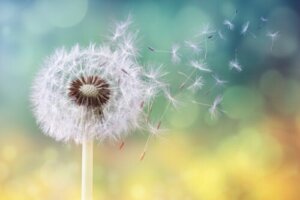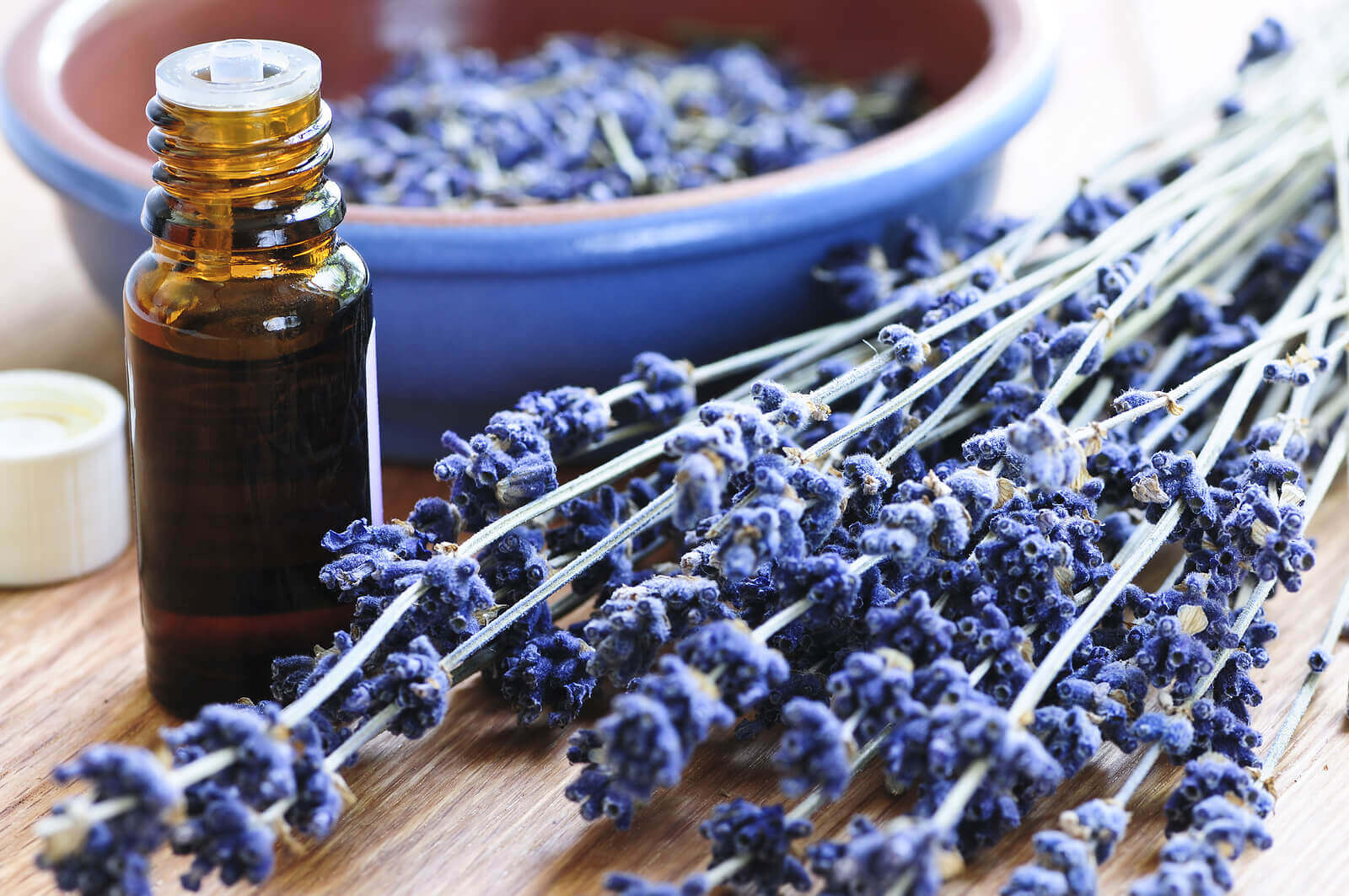10 Natural Remedies for Pollen Allergy


Written and verified by the dermatologist Maria del Carmen Hernandez
About 20% of the population suffers from a pollen allergy, an inflammation of the entire inner surface of the nose. This condition occurs when the person inhales or comes into contact with this substance.
This condition affects the nasal mucosa and causes multiple symptoms, including sneezing, itching, runny nose, and airway obstruction.
Pollen allergy: Some home and natural remedies
This type of allergy is also known as hay fever or seasonal allergic rhinitis, as it manifests itself at specific times of the year.
Here are some natural remedies to calm the signs and symptoms.
1. Eucalyptus or lavender steam
Steam is one of the most recommended methods for nasal congestion, as it helps to cleanse the airways more effectively. Even the addition of essential oils, such as eucalyptus or lavender, enhance the desired effect.
Inhaling peppermint vapor is also helpful in calming these symptoms, as this leaf contains a substance that prevents histamine synthesis (which triggers allergies) while relieving sneezing and nasal congestion.
In any case, in young children, the use of these substances may be discouraged due to the risk of poisoning.

2. Balanced diet
Food is one of the most important pillars to keep the immune system strong. Therefore, foods high in vitamins A, B, C, and E, as well as omega 3 fatty acids are essential.
Some of the foods that stimulate the immune system and decrease the allergic reaction are included in the following list:
- Garlic
- Onion
- Ginger
- Pineapple
3. Probiotics
A review by Current Pharmaceutical Design describes the beneficial effects of using probiotics to decrease the immune response to pollen. Also, these elements block the synthesis of immunoglobulin E, which is responsible for causing sneezing and mucus.
Although there are foods naturally rich in probiotics, such as yogurt, kefir, and dark chocolate, you can also resort to taking pharmacological supplements.
You may be interested in: 10 Natural Remedies for Atopic Skin in Babies
4. Humid environments
It’s best to maintain a certain humidity in home environments, and for this, humidifiers can be quite useful and effective. Also, an air purifier with an active carbon filter can be used.
However, an excessively humid environment also favors the proliferation of molds and mites, so the appliance must be used judiciously.
5. Garment washing
When arriving home, it’s best to change the clothes that you wore outdoors, as pollen can be attached to the clothing. In addition, we also recommend drying the garments in the dryer or inside the house to prevent them from being impregnated with this substance outside.
Even make sure that the laundry detergent and fabric softener you use to wash your clothes are hypoallergenic.
6. Daily showers
Experts also recommend always showering when returning home to remove any type of pollen particle that’s in contact with the skin or clothing. In turn, showers at the end of the day also help you feel cooler and soothe irritation in your eyes.
7. Nasal washes
Implementing nasal washes with physiological saline helps to eliminate itching and local mucus. Also, it helps to keep the nose hairs clean so that they can fulfill their barrier function and protect the cavity in the correct way. They even contribute to the removal of dust and pollen that cause the allergic reaction and soften the mucus.
Also read: What Is Physiological Saline for Babies and Children?
8. Home cleaning
One of the most important recommendations is to keep the house clean and avoid the presence of mold and objects or ornaments that can accumulate dust.
In addition, after ventilating the rooms, the windows should be closed so that the pollen that circulates outside doesn’t enter the home.
9. Outdoor sports
Try to avoid playing sports outdoors or long walks outdoors. That is, during the spring and summer months, which is when there’s more pollination outside, choose the gym to exercise.
Dry or sunny days are those in which the greatest amount of pollen is concentrated. On the contrary, immediately after it rains, the amount of pollen in the air is much lower.
10. The consumption of Vitamin C

Vitamin C is a natural and very powerful antihistamine, which can be found in various foods such as lemons, oranges, grapefruits, or green leafy vegetables.
Also known as ascorbic acid, this vitamin helps fight allergic reactions as long as it’s taken regularly and in the doses that the body needs.
Home remedies for pollen allergy are supplements to medical care
Although there are natural remedies to calm the clinical manifestations, the treatment indicated by a doctor is essential in order to reduce and combat allergies. In relation to the symptoms that the child has, the professional will prescribe the correct medical treatment. However, the best way to combat the symptoms of this allergy is to reduce exposure to the pollen itself.
About 20% of the population suffers from a pollen allergy, an inflammation of the entire inner surface of the nose. This condition occurs when the person inhales or comes into contact with this substance.
This condition affects the nasal mucosa and causes multiple symptoms, including sneezing, itching, runny nose, and airway obstruction.
Pollen allergy: Some home and natural remedies
This type of allergy is also known as hay fever or seasonal allergic rhinitis, as it manifests itself at specific times of the year.
Here are some natural remedies to calm the signs and symptoms.
1. Eucalyptus or lavender steam
Steam is one of the most recommended methods for nasal congestion, as it helps to cleanse the airways more effectively. Even the addition of essential oils, such as eucalyptus or lavender, enhance the desired effect.
Inhaling peppermint vapor is also helpful in calming these symptoms, as this leaf contains a substance that prevents histamine synthesis (which triggers allergies) while relieving sneezing and nasal congestion.
In any case, in young children, the use of these substances may be discouraged due to the risk of poisoning.

2. Balanced diet
Food is one of the most important pillars to keep the immune system strong. Therefore, foods high in vitamins A, B, C, and E, as well as omega 3 fatty acids are essential.
Some of the foods that stimulate the immune system and decrease the allergic reaction are included in the following list:
- Garlic
- Onion
- Ginger
- Pineapple
3. Probiotics
A review by Current Pharmaceutical Design describes the beneficial effects of using probiotics to decrease the immune response to pollen. Also, these elements block the synthesis of immunoglobulin E, which is responsible for causing sneezing and mucus.
Although there are foods naturally rich in probiotics, such as yogurt, kefir, and dark chocolate, you can also resort to taking pharmacological supplements.
You may be interested in: 10 Natural Remedies for Atopic Skin in Babies
4. Humid environments
It’s best to maintain a certain humidity in home environments, and for this, humidifiers can be quite useful and effective. Also, an air purifier with an active carbon filter can be used.
However, an excessively humid environment also favors the proliferation of molds and mites, so the appliance must be used judiciously.
5. Garment washing
When arriving home, it’s best to change the clothes that you wore outdoors, as pollen can be attached to the clothing. In addition, we also recommend drying the garments in the dryer or inside the house to prevent them from being impregnated with this substance outside.
Even make sure that the laundry detergent and fabric softener you use to wash your clothes are hypoallergenic.
6. Daily showers
Experts also recommend always showering when returning home to remove any type of pollen particle that’s in contact with the skin or clothing. In turn, showers at the end of the day also help you feel cooler and soothe irritation in your eyes.
7. Nasal washes
Implementing nasal washes with physiological saline helps to eliminate itching and local mucus. Also, it helps to keep the nose hairs clean so that they can fulfill their barrier function and protect the cavity in the correct way. They even contribute to the removal of dust and pollen that cause the allergic reaction and soften the mucus.
Also read: What Is Physiological Saline for Babies and Children?
8. Home cleaning
One of the most important recommendations is to keep the house clean and avoid the presence of mold and objects or ornaments that can accumulate dust.
In addition, after ventilating the rooms, the windows should be closed so that the pollen that circulates outside doesn’t enter the home.
9. Outdoor sports
Try to avoid playing sports outdoors or long walks outdoors. That is, during the spring and summer months, which is when there’s more pollination outside, choose the gym to exercise.
Dry or sunny days are those in which the greatest amount of pollen is concentrated. On the contrary, immediately after it rains, the amount of pollen in the air is much lower.
10. The consumption of Vitamin C

Vitamin C is a natural and very powerful antihistamine, which can be found in various foods such as lemons, oranges, grapefruits, or green leafy vegetables.
Also known as ascorbic acid, this vitamin helps fight allergic reactions as long as it’s taken regularly and in the doses that the body needs.
Home remedies for pollen allergy are supplements to medical care
Although there are natural remedies to calm the clinical manifestations, the treatment indicated by a doctor is essential in order to reduce and combat allergies. In relation to the symptoms that the child has, the professional will prescribe the correct medical treatment. However, the best way to combat the symptoms of this allergy is to reduce exposure to the pollen itself.
All cited sources were thoroughly reviewed by our team to ensure their quality, reliability, currency, and validity. The bibliography of this article was considered reliable and of academic or scientific accuracy.
- Prakash S, Tomaro-Duchesneau C, Saha S, Rodes L, Kahouli I, Malhotra M. Probiotics for the prevention and treatment of allergies, with an emphasis on mode of delivery and mechanism of action. Curr Pharm Des. 2014;20(6):1025-37. doi: 10.2174/138161282006140220145154. PMID: 23701572. Disponible en: https://pubmed.ncbi.nlm.nih.gov/23701572/
- Silva J, Abebe W, Sousa SM, Duarte VG, Machado MI, Matos FJ. Analgesic and anti-inflammatory effects of essential oils of Eucalyptus. J Ethnopharmacol. 2003 Dec;89(2-3):277-83. doi: 10.1016/j.jep.2003.09.007. PMID: 14611892. Disponible en: https://pubmed.ncbi.nlm.nih.gov/14611892/
- Vitamin C. [Internet] Disponible en: https://ods.od.nih.gov/factsheets/VitaminC-HealthProfessional/
This text is provided for informational purposes only and does not replace consultation with a professional. If in doubt, consult your specialist.








